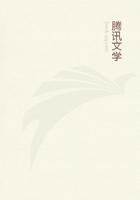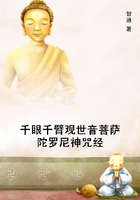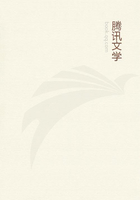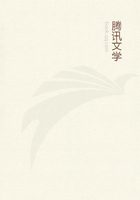Of the French writers of romance of the latter part of the nineteenth century no one made a reputation as quickly as did Guy de Maupassant. Not one has preserved that reputation with more ease, not only during life, but in death. None so completely hides his personality in his glory. In an epoch of the utmost publicity, in which the most insignificant deeds of a celebrated man are spied, recorded, and commented on, the author of "Boule de Suif," of "Pierre et Jean," of "Notre Coeur," found a way of effacing his personality in his work.
Of De Maupassant we know that he was born in Normandy about 1850;that he was the favorite pupil, if one may so express it, the literary protege, of Gustave Flaubert; that he made his debut late in 1880, with a novel inserted in a small collection, published by Emile Zola and his young friends, under the title:
"The Soirees of Medan"; that subsequently he did not fail to publish stories and romances every year up to 1891, when a disease of the brain struck him down in the fullness of production; and that he died, finally, in 1893, without having recovered his reason.
We know, too, that he passionately loved a strenuous physical life and long journeys, particularly long journeys upon the sea.
He owned a little sailing yacht, named after one of his books, "Bel-Ami," in which he used to sojourn for weeks and months.
These meager details are almost the only ones that have been gathered as food for the curiosity of the public.
I leave the legendary side, which is always in evidence in the case of a celebrated man,--that gossip, for example, which avers that Maupassant was a high liver and a worldling. The very number of his volumes is a protest to the contrary. One could not write so large a number of pages in so small a number of years without the virtue of industry, a virtue incompatible with habits of dissipation. This does not mean that the writer of these great romances had no love for pleasure and had not tasted the world, but that for him these were secondary things. The psychology of his work ought, then, to find an interpretation other than that afforded by wholly false or exaggerated anecdotes. I wish to indicate here how this work, illumined by the three or four positive data which I have given, appears to me to demand it.
And first, what does that anxiety to conceal his personality prove, carried as it was to such an extreme degree? The answer rises spontaneously in the minds of those who have studied closely the history of literature. The absolute silence about himself, preserved by one whose position among us was that of a Tourgenief, or of a Merimee, and of a Moliere or a Shakespeare among the classic great, reveals, to a person of instinct, a nervous sensibility of extreme depth. There are many chances for an artist of his kind, however timid, or for one who has some grief, to show the depth of his emotion. To take up again only two of the names just cited, this was the case with the author of "Terres Vierges," and with the writer of "Colomba."A somewhat minute analysis of the novels and romances of Maupassant would suffice to demonstrate, even if we did not know the nature of the incidents which prompted them, that he also suffered from an excess of nervous emotionalism. Nine times out of ten, what is the subject of these stories to which freedom of style gives the appearance of health? A tragic episode. I cite, at random, "Mademoiselle Fifi," "La Petite Roque," "Inutile Beaute," "Le Masque," "Le Horla," "L'Epreuve," "Le Champ d'Oliviers," among the novels, and among the romances, "Une Vie,""Pierre et Jean," "Fort comme la Mort," "Notre Coeur." His imagination aims to represent the human being as imprisoned in a situation at once insupportable and inevitable. The spell of this grief and trouble exerts such a power upon the writer that he ends stories commenced in pleasantry with some sinister drama.
Let me instance "Saint-Antonin," "A Midnight Revel," "The Little Cask," and "Old Amable." You close the book at the end of these vigorous sketches, and feel how surely they point to constant suffering on the part of him who executed them.
This is the leading trait in the literary physiognomy of Maupassant, as it is the leading and most profound trait in the psychology of his work, viz, that human life is a snare laid by nature, where joy is always changed to misery, where noble words and the highest professions of faith serve the lowest plans and the most cruel egoism, where chagrin, crime, and folly are forever on hand to pursue implacably our hopes, nullify our virtues, and annihilate our wisdom. But this is not the whole.
Maupassant has been called a literary nihilist--but (and this is the second trait of his singular genius) in him nihilism finds itself coexistent with an animal energy so fresh and so intense that for a long time it deceives the closest observer. In an eloquent discourse, pronounced over his premature grave, Emile Zola well defined this illusion: "We congratulated him," said he, "upon that health which seemed unbreakable, and justly credited him with the soundest constitution of our band, as well as with the clearest mind and the sanest reason. It was then that this frightful thunderbolt destroyed him."It is not exact to say that the lofty genius of De Maupassant was that of an absolutely sane man. We comprehend it to-day, and, on re-reading him, we find traces everywhere of his final malady.















